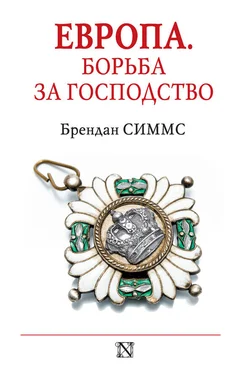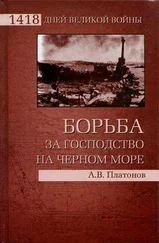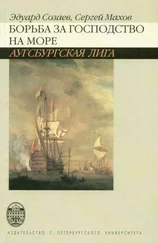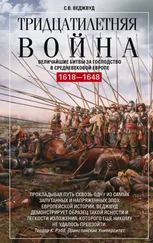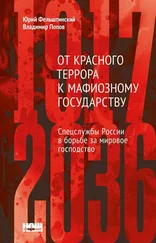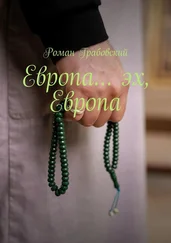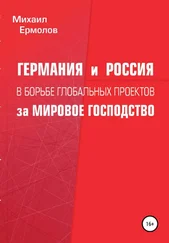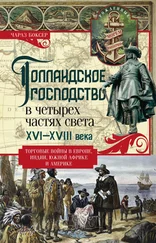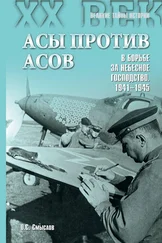Fernande Scheid Raine, ‘Stalin and the creation of the Azerbaijan Democratic Party in Iran, 1945’, Cold War History, 2, 1 (2001), pp. 1–38 (quotation p. 1).
Способ существования ( лат .) . Примеч. ред.
George F. Kennan, ‘Containment: 40 years later. Containment then and now’, Foreign Affairs, 65, 4 (Spring 1987).
В названии своей речи Черчилль обыграл английское выражение «sinews of war», то есть «средства (букв. сухожилия) для ведения войны» . Примеч. ред.
Dirk Spilker, ‘The Socialist Unity Party of Germany (SED) and the German Question, 1944–1953’, dissertation abstract, compiled by Cornelie Usborne, German History, 17, 1 (1999), pp. 102–3.
Миф об «изнасилованной Германии» широко распространился в современной западной историографии после публикации в 2002 году книги английского историка Э. Бивора «Падение Берлина» . Примеч. ред.
Norman Naimark, The Russians in Germany. A history of the Soviet zone of occupation, 1945–49 (Cambridge, Mass., 1995).
Hannes Adomeit, Imperial overstretch. Germany in Soviet policy from Stalin to Gorbachev (Baden-Baden, 1998).
Richard L. Merritt, Democracy imposed: US occupation policy and the German public, 1945–1949 (New Haven, 1995). Я признателен своему студенту Россу Дж. Токоле за это и другие указания.
Wolfgang Krieger, ‘Was General Clay a revisionist? Strategic aspects of the United States occupation of Germany’, Journal of Contemporary History, 18, 2 (1983), pp. 165–84 (quotation p. 180).
Josef Foschepoth, ‘British interest in the division of Germany after the Second World War’, Journal of Contemporary History, 23, 3 (1986), pp. 391–411. For a broader overview of the post-war British preoccupation with Germany see Daniel Gossel, Briten, Deutsche und Europa. Die deutsche Frage in der britischen Aussenpolitik, 1945–1962 (Stuttgart, 1999).
William I. Hitchcock, France restored: Cold War diplomacy and the quest for leadership in Europe, 1944–1954 (Chapel Hill, 1998), pp. 74–7 and passim.
‘X’ [George Kennan], ‘The sources of Soviet conduct’, Foreign Affairs, 25, 4 (July 1947), pp. 566–82.
John Lewis Gaddis, The long peace. Inquiries into the history of the Cold War (New York and Oxford, 1987), pp. 41–2.
Tony Judt, Postwar. A history of Europe since 1945 (London, 2005).
Arnold A. Offner, Another such victory. President Truman and the Cold War, 1945–1953 (Stanford, 2002), pp. 157–67.
Klaus Schwabe, ‘The Cold War and European integration, 1947–63’, Diplomacy and Statecraft, 12, 4 (2001), pp. 18–34.
Robert E. Ferrell, ‘The Truman era and European integration’, in Francis H. Heller and John R. Gillingham (eds.), The United States and the integration of Europe. Legacies of the postwar era (New York, 1996), p. 28.
Avi Shlaim, Britain and the origins of European unity (Reading, 1978), pp. 114–42.
John W. Young, Britain, France and the unity of Europe, 1945–1951 (Leicester, 1984), pp. 77–9 and passim.
Mark Byrnes, ‘Unfinished business: the United States and Franco’s Spain, 1944–47’, Diplomacy and Statecraft, 11, 1 (2000), pp. 153–6.
Anne Deighton (ed.), Britain and the First Cold War (Basingstoke, 1990), p. 58.
То есть стран, расположенных ниже экватора (здесь конкретно – Австралии и Новой Зеландии) . Примеч. ред.
Палестинские арабы ежегодно отмечают 15 мая День Накба, соблюдают минуту молчания и устраивают марши и демонстрации . Примеч. ред.
Moshe Zimmermann, ‘Militär, Militarismus und Zivilgesellschaft in Israel – eine europäische Erbschaft?’, in Ute Frevert (ed.), Militär und Gesellschaft im 19. und 20. Jahrhundert (Stuttgart, 1997), pp. 342–58.
Moshe Naor, ‘Israel’s 1948 war of independence as a total war’, Journal of Contemporary History, 43, 2 (2008), pp. 241–57 (quotation p. 246).
Scott Parrish, ‘The Marshall Plan and the division of Europe’, in Naimark and Gibianskii (eds.), Establishment of communist regimes in eastern Europe, pp. 267–90, especially pp. 286–7.
Silvio Pons, ‘Stalin, Togliatti, and the origins of the Cold War in Europe’, Journal of Cold War Studies 3, 2 (2001), pp. 3–27, especially pp. 5 and 12.
Robert H. Van Meter, ‘Secretary of State Marshall, General Clay, and the Moscow Council of Foreign Ministers meeting of 1947: a response to Philip Zelikow’, Dip – lomacy and Statecraft, 16, 1 (2005), pp. 139–67, especially pp. 142–3, 145 and 152 (Dulles quotation p. 151).
Roger G. Miller, To save a city. The Berlin airlift, 1948–49 (College Station, Texas, 2000), pp. 36–86.
Edmund Spevack, ‘American pressures on the German constitutional tradition: basic rights in the West German constitution of 1949’, International Journal of Politics, Culture and Society, 10, 3 (1997), pp. 411–36 (quotation p. 424). О роли США в политической демократизации Германии: Daniel E. Rogers, ‘Transforming the German party system. The United States and the origins of political moderation, 1945–1949’, Journal of Modern History, 65, 3 (1993), pp. 512–41.
Paul Fritz, ‘From defeat and division to democracy in Germany’, in Mary Fran T. Malone (ed.), Achieving democracy. Democratization in theory and practice (New York and London, 2011), pp. 169–94.
Abbott Gleason, Totalitarianism. The inner history of the Cold War (Oxford, 1995), pp. 157–66, for anti-totalitarianism as the ‘quasi-of cial ideology of the West German state’ (p. 157).
Ulrich Lappenküper, ‘Primat der Aussenpolitik! Die Verständigung zwischen der Bundesrepublik Deutschland und Frankreich, 1949–1963’, in Eckart Conze, Ulrich Lappenküper and Guido Müller (eds.), Geschichte der internationalen Beziehungen. Erneuerung und Erweiterung einer his – torischen Disziplin (Cologne, Weimar and Vienna, 2004), pp. 45–63.
Robert A. Divine, ‘The Cold War and the election of 1948’, Journal of American History, 59 (1972), pp. 90–110, especially pp. 91, 95 and 98–9 (Dewey quotation p. 100).
Читать дальше
Конец ознакомительного отрывка
Купить книгу
